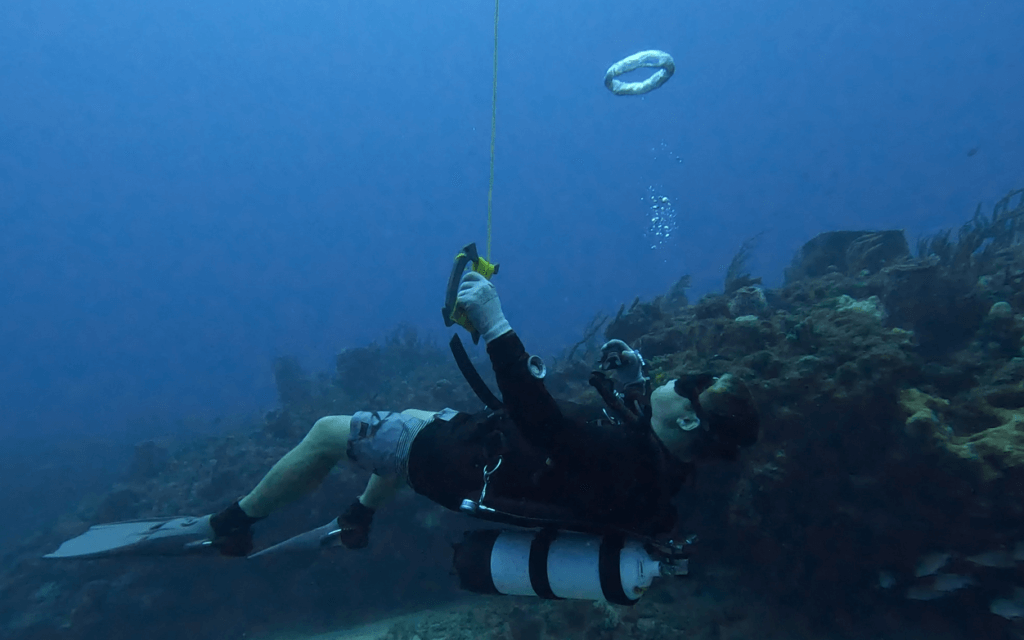Buoyancy Control
As a Specialty Course? No. Let’s Explore why…
When beginning your training in scuba, your safety and enjoyment are paramount. One skill that should be an integral part of every open water diving course is buoyancy control. Buoyancy control should not be considered a specialty course; it’s the cornerstone of safe and responsible diving. Let’s explore why teaching buoyancy control from the very beginning is essential for a rewarding diving experience. I’ll then share some unique thoughts on this in my conclusion.
- Safety at the Forefront:
Safety is the top priority when diving. Poor buoyancy control can lead to accidents and emergencies, potentially resulting in injury or death. Inadequate training in buoyancy may cause uncontrolled, rapid ascents or descents, barotrauma, decompression sickness, or nitrogen narcosis. Additionally, poor buoyancy may cause harm to delicate marine life, disrupt ecosystems, or lead to collisions with underwater structures. It is entirely on the instructor to develop buoyancy control in students as a core skill from the start, ensuring divers develop good habits from the beginning of their training.
- Environmental Stewardship:
Teaching buoyancy control early in a diving course underscores the importance of minimizing our impact on aquatic life and the underwater environment. Proper buoyancy control prevents inadvertent damage to coral reefs, sediment disturbance, and disruption of marine organisms. Instilling environmental responsibility from the outset encourages divers to adopt sustainable diving practices, preserving these magnificent underwater environments.
- Elevating the Dive Experience:
Buoyancy control isn’t just about safety and conservation; it significantly enhances the overall diving experience! Divers who learn how to control their buoyancy can glide effortlessly through the water, conserving energy and air consumption. This leads to longer dives, better exploration, and the ability to appreciate the underwater beauty without the constant struggle to maintain depth! A confident and comfortable diver experiences more enjoyable and memorable underwater adventures.
- The Foundation for Skill Progression:
Buoyancy control serves as the bedrock for mastering other essential diving skills. It plays a pivotal role in tasks like underwater navigation, photography, and advanced diving inside wrecks or caves. With a solid foundation in buoyancy control, divers can effectively develop these skills, allowing them to delve into more adventurous pursuits. It becomes the cornerstone upon which all other diving skills are honed.
- Protection for Your Gear:
Improper buoyancy control can result in damage to your diving equipment. Dragging gear across the seabed or accidental collisions with rocks or structures due to buoyancy issues can lead to costly repairs and replacements. Early instruction in buoyancy control instills equipment mindfulness, ultimately prolonging the life of your gear and saving you money over time.
Conclusion:
Teaching proper buoyancy control from the very beginning of an open water course is the pivotal step in ensuring safe, enjoyable, and responsible diving. It prioritizes safety, promotes environmental conservation, enriches the dive experience, facilitates skill progression, and safeguards dive gear. Buoyancy control is the foundation upon which all other diving skills are built, making it an indispensable component of every diver’s education. By instilling solid buoyancy habits early on, instructors empower divers to explore the underwater world while minimizing their environmental impact.
“If you’ve ever felt rushed through a course and think you could benefit from refining your buoyancy control, worry not! Reach out to us, and our team of instructors will be delighted to provide you with personalized guidance to enhance your skills. Our focus is on comprehensive scuba diving instruction. What we don’t do is promote and sell unnecessary “special courses” as if they’re something extraordinary. Rest assured that if you take any course with us, it’s packed with substance. However, if you need some extra work, whether it’s improving self-rescue skills, buddy rescue skills, air consumption, navigation, finning techniques, trim, or simply fine-tuning your scuba equipment, we’re committed to enhancing all aspects of your diving proficiency and turning you into a well-rounded diver.”
– George Mills, NAUI Instructor #60750
At DiveLogix, we hold the belief that specialty courses focused on buoyancy control are a reflection of certain agencies’ decision to create and market a course that, in our view, should be an integral part of the initial training. Poor-quality instruction stems directly from the industry’s adoption of the “quick, cheap, and easy” model for scuba training courses, designed to expedite students through certification with limited skills. There is no need for a separate “specialty course” – buoyancy control is a fundamental aspect of Scuba 101.

